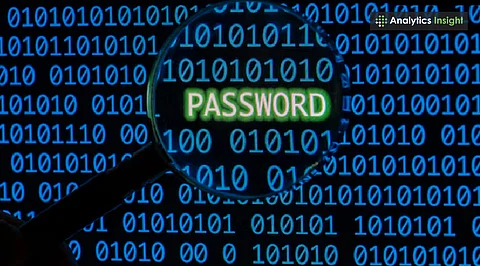

Compare six leading password managers shaping digital security in 2025.
Analyse strengths: open-source, usability, privacy, enterprise, and bundles.
Discover which option fits your needs, families, businesses, or privacy-first.
In 2025, password managers will no longer be specialized tools. They will be frontline defenses against data breaches, credential theft, and phishing. As the internet moves towards zero-trust models and passkeys, whether or not you need a password manager is a less important question than which one to choose.
From the open-source initiatives to the high-end all-encompassing platforms, the options mirror broader trends in how we protect our digital existence.
Here’s an evaluation of this year’s top password managers, explaining why they excel and what compromises they make.
Bitwarden embodies the open-source method of cybersecurity: open code, independent audits, and rigorous community control. Its free plan already bundles unlimited passwords, cross-device synchronization, and passkey support, features others charge for.
The Family plan is $40 a year, showing that tough protection shouldn’t come at a hefty price. The compromise? Though secure, its interface isn’t as slick as those of paid competitors such as 1Password. However, for individuals who care about sustainability, price, and transparency, Bitwarden leads the pack.
1Password’s success points to a central point: security is only as good as usability. Many breaches occur because users bypass cumbersome tools. By automating password storage, making family sharing easy, and business collaboration straightforward, 1Password makes secure behaviour easier to adopt.
It’s Travel Mode, which masks vaults when traveling across borders, highlighting how it preempts real-life dangers. But for $24.95 per month, it’s squarely in the premium space. The cost is indicative of a larger trend: firms capitalizing on features and convenience.
RoboForm’s fame lies in its early adoption of passwordless sign-ins via passkeys. With Apple, Google, and Microsoft working towards replacing passwords with biometrics and cryptographic keys, RoboForm is a gateway to that future.
Its existing user base appreciates reliability and stability, and its pricing is competitive. But does this pose a question: Will shoppers adopt passkeys at the same speed that tech conglomerates promote them? RoboForm hopes so.
Also Read: Easy Steps to Log Into Gmail When You Forget Your Password
Proton has established a brand of privacy maximalism, from Proton Mail through Proton VPN, and Proton Pass brings that ideal to password management. It includes email aliasing to hide your identity during service sign-up, something more than just storing passwords.
Its value is in a broader ecosystem: loyal users of Proton’s suite of services view Pass as an organic extension. Nevertheless, its usage will determine if niche, privacy-first products can succeed beyond privacy enthusiasts for everyday mainstream usage.
Dashlane demonstrates the ‘all-in-one’ phenomenon in cybersecurity. In addition to password storage, it includes a VPN, dark web scanning, and password health reports. The concept is straightforward: customers receive one platform rather than managing separate apps.
The question is whether bundling enhances security or simply increases subscription fees. Dashlane is still unmatched for those who appreciate all-in-one convenience and are willing to pay more. But for minimalists, it will be overkill.
Keeper has expanded by concentrating on enterprise-class controls: breach monitoring, file storage, emergency access, and granular admin policies. That degree of control matters for companies where one breached credential can cost them millions.
For the solo user, Keeper can be ponderous relative to Bitwarden or Proton Pass. However, in the age of ransomware and supply chain assaults, which currently fill the headlines, its enterprise-first approach accurately reflects the increasing overlap of work and personal cybersecurity.
Also Read: End of Passwords? Why the 16 Billion Login Breach Demands a Passwordless Future
Pondering upon these six leaders, Bitwarden, 1Password, RoboForm, Proton Pass, Dashlane, and Keeper, one thing is sure: password management is no longer simply about passwords. Each represents a response to the risks and trends of our era:
Openness and affordability (Bitwarden)
Ease of use as security itself (1Password)
Passwordless future readiness (RoboForm)
Privacy ecosystems (Proton Pass)
Integrated protection suites (Dashlane)
Enterprise-driven controls (Keeper)
The actual analytical takeaway? The best password manager in 2025 is not so much about straight-up excellence as it is about fit. Users must balance cost versus convenience, openness versus finish, and privacy versus integration.
In 2025, the old practice of reusing ‘123456’ or ‘qwerty’ is no longer defensible. The question is, which of these digital safes will you entrust your keys to the internet?
1. Are password managers safe?
Yes. They use end-to-end encryption and zero-knowledge architecture, meaning even providers cannot access stored credentials.
2. Do password managers support passkeys?
Most modern managers, like Bitwarden, 1Password, and RoboForm, support passkeys, preparing users for a passwordless digital future.
3. Which is the best free password manager?
Bitwarden tops the list, offering unlimited devices, cross-platform sync, and passkey support without charging users.
4. Can families share one password manager account?
Yes. Managers like 1Password and Keeper offer family plans, which enable secure password sharing among members with controlled access.
5. Do password managers work offline?
Yes. Most allow offline vault access, ensuring stored credentials remain available without internet connectivity.
